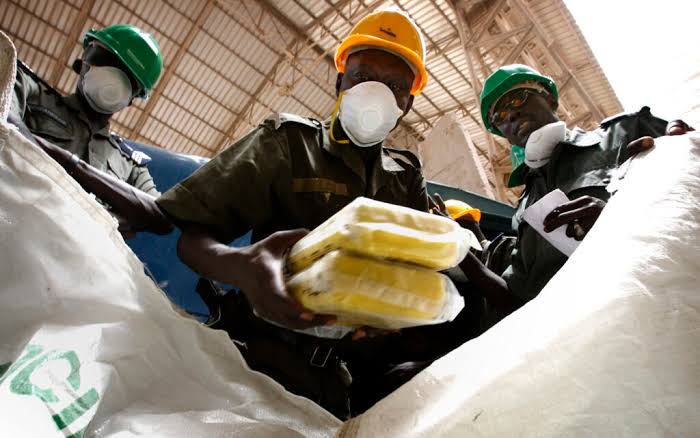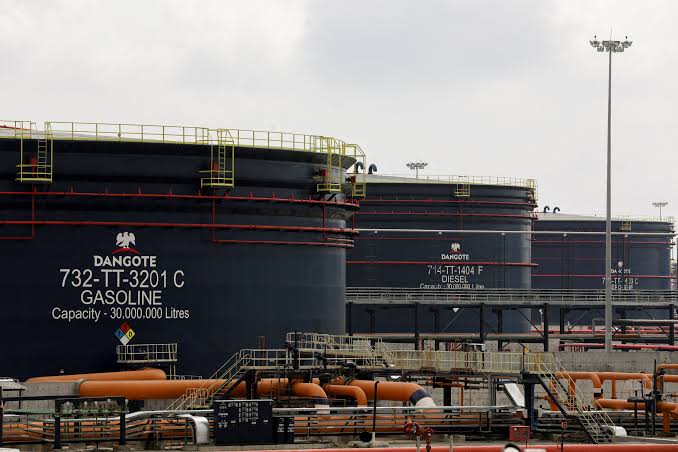
Faith Nyasuguta
Africa’s biggest oil refinery, the $20 billion Dangote Petroleum Refinery, is seizing a golden opportunity from refinery shutdowns in the Middle East, exporting more fuel and edging close to full operational capacity. In recent months, the facility has been filling a critical supply gap, transforming Nigeria’s long-awaited refinery dream into a global player reshaping regional energy flows.
Several of the Middle East’s largest refining complexes have scaled down or shut units for maintenance, leaving supply shortages that Africa’s largest refinery has been quick to exploit. Saudi Aramco, for instance, has seen disruptions at multiple facilities. Its Jizan 400,000 barrels-per-day (bpd) refinery has had its reformer unit offline since July, while the Yasref refinery in Yanbu also scaled back operations in recent weeks.
With these downtimes, major markets across the Middle East Gulf, including Saudi Arabia and the United Arab Emirates, have turned to imports at levels not seen in years. Saudi gasoline imports jumped from 144,000 tonnes in June to 478,000 tonnes in July, while the UAE purchased 864,000 tonnes in August, up from 648,000 tonnes a month earlier.
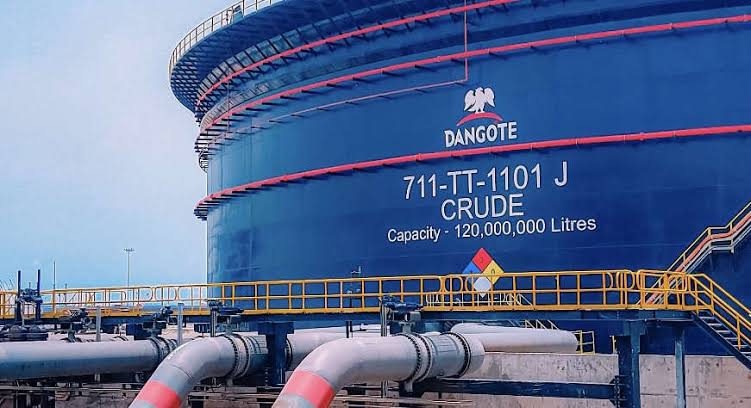
Positioned in Nigeria’s Lekki Free Zone, the Dangote Refinery has been shipping out Premium Motor Spirit (PMS/gasoline), Automotive Gas Oil (AGO/diesel), and Jet A1 aviation fuel, with Middle Eastern buyers now among its key customers.
In June and July alone, the refinery exported two long-haul cargoes to the Gulf region, according to reports. One landmark shipment included 90,000 metric tonnes of gasoline sent to Asia, the first time the refinery exported petrol beyond West Africa.
This pivot comes as global supply chains tighten. Argus Media, a respected global energy and commodity agency, warned that the Middle East’s heavy refinery turnaround season in the fourth quarter will further strain gasoline markets, making imports crucial.
“The Dangote refinery had previously supplied two LR cargoes to the Mideast Gulf region when markets were tight,” Argus reported. “If economic conditions align and technical issues are resolved, flows from Dangote could emerge as a consistent supply line.”
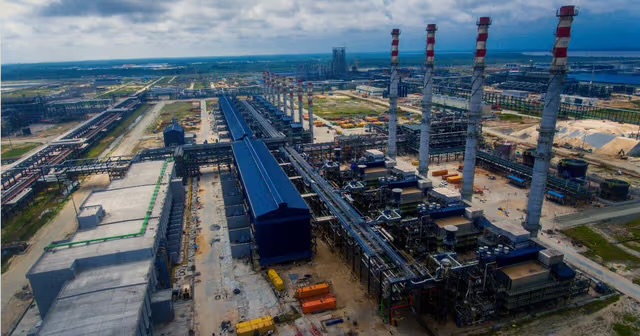
Output Soars to New Heights
Beyond opportunistic exports, the refinery itself is reaching milestones that skeptics once doubted. Official estimates now place its production levels at 610,000 barrels per day (bpd) in August 2025, tantalizingly close to its official capacity of 650,000 bpd. The figure places Dangote’s operation on par with the world’s largest and most sophisticated refineries. For Nigeria, a country long plagued by fuel shortages despite being Africa’s top crude producer, it marks a dramatic turnaround.
“The Dangote refinery has been running this year more reliably and strongly than ever before,” said Benedict George, editor of the Argus European Products Report, in a recent podcast titled Can the Dangote Refinery Declare Victory Over Doubters?
He added: “We have seen crude receipts and run rates grow month on month. From 400,000 bpd earlier in the year, the refinery is now producing over 600,000 bpd — a performance well above half its nameplate capacity and rising fast.”
A Game-Changer for Nigeria & Africa
The refinery’s impact extends far beyond exports. At full throttle, Dangote’s plant has the capacity to meet Nigeria’s entire domestic fuel demand while also supplying neighboring African markets. This could save Nigeria billions of dollars annually in fuel imports and reduce exposure to volatile global energy prices.
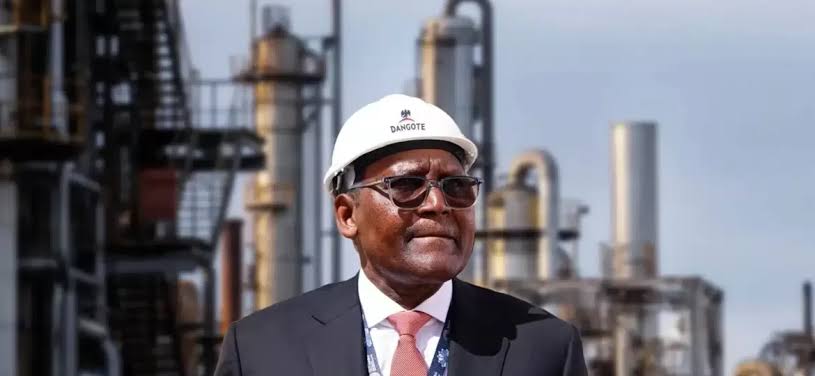
It also positions Nigeria as a competitive exporter of refined products – something the country has failed to achieve since independence despite being one of the world’s top 10 oil producers.
Meanwhile, Middle Eastern buyers turning to Africa for fuel highlights a rare reversal of energy trade patterns, where Africa – long a raw material exporter – is now refining and selling to some of the richest energy economies on the planet.
What Next?
The refinery’s success is not without challenges. Technical hitches, such as earlier issues with its residual fluid catalytic cracker, remain a concern. Additionally, sustaining near-full capacity will require steady supplies of crude oil, reliable infrastructure, and robust management to avoid the pitfalls of many Nigerian state-led projects in the past.
Yet, for now, the refinery is proving doubters wrong. The combination of Middle East refining snags and Dangote’s rising output has created a perfect storm of opportunity, one that cements the refinery’s role in reshaping Africa’s place in the global energy market.
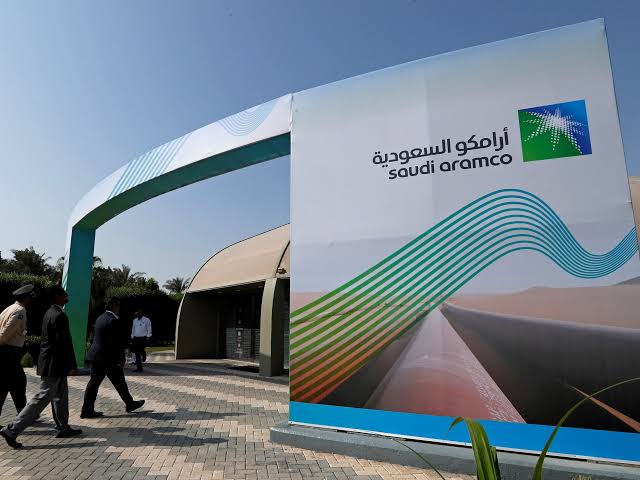
As Saudi Aramco prepares to take more plants offline later this year – including the 460,000 bpd Satorp refinery in Jubail for a 60-day shutdown and another at Riyadh – the Dangote Refinery may find itself even more indispensable.
The Bottom Line
From skepticism to triumph, the Dangote Refinery has emerged not only as Africa’s largest but also as a global energy disruptor. With output near full capacity and exports feeding the very markets once thought untouchable, Aliko Dangote’s vision is proving to be more than just a Nigerian success story, it’s a continental and global shift in the refining map.
RELATED:







